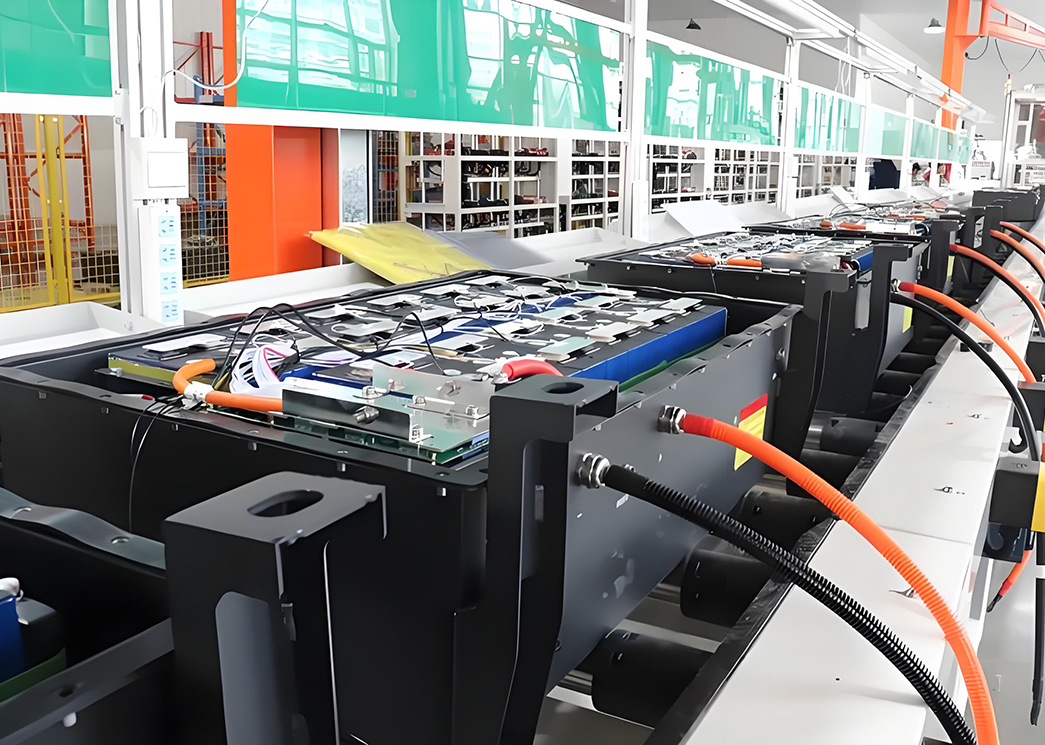Quality Inspection and Control of Lithium Battery Module Pack Production Line
In the current booming development of the new energy industry, the quality of lithium batteries as core energy storage components directly affects the safety and efficiency of many application scenarios. The quality inspection and control of the lithium battery module pack production line is like the calibration process of precision instruments. From the entry of battery cells into the factory to the production of finished modules, each level of inspection determines the success or failure of the product. Next, we will provide a detailed introduction for everyone.
Lithium battery module pack production line

Cell quality testing
Appearance and size inspection
The appearance of the battery cell should not have scratches, deformations, or bulges. We usually rely on manual visual observation and high-precision measuring instruments such as calipers and micrometers to measure the size of battery cells. If the size does not meet the standard, there will be major problems during subsequent assembly. For example, if the size deviation of the battery cells is too large, they cannot be tightly packed in the module, which affects the performance of the battery. So, this inspection needs to be meticulous to ensure that each battery cell has a good appearance and accurate size.
Electrical performance testing
The electrical performance parameters of a battery cell, such as capacity, internal resistance, and voltage, directly reflect the quality of the battery cell. We use professional charging and discharging equipment to simulate the usage of battery cells under different working conditions, and accurately measure their capacity through multiple charging and discharging cycles. Quickly measure internal resistance with an internal resistance tester and measure voltage with a high-precision multimeter. If the battery cell capacity does not meet the standard, the overall battery life will be affected; The internal resistance is high, causing severe heating and energy loss during charging and discharging; Unstable voltage leads to unstable battery operation. So electrical performance testing is of utmost importance.
Quality control of module assembly process
Welding quality inspection
In lithium battery modules, the cells are connected by welding. Poor welding quality can lead to poor contact and affect battery performance. There are two commonly used detection methods. One is visual inspection, to see if the solder joints are smooth, full, and if there are any virtual or missing solder joints. Another method is to use an X-ray flaw detector to see if there are any defects inside the solder joints. For car power battery modules, the welding quality requirements are extremely high, and it is necessary to ensure that each welding point is firm and reliable.
Connection reliability check
In addition to welding, there are many connectors in the module. We need to check if these connectors are loose or corroded. You can use a torque wrench to check if the bolt tightening torque meets the standard. If the connector becomes loose, the resistance will increase, making it easy to generate heat, and in severe cases, it may cause a fire. So the reliability check of the connection cannot be taken lightly.
Finished module quality inspection
Capacity and energy testing
For the assembled lithium battery module, its capacity and energy should be tested as a whole. Place the module in a professional charging and discharging testing system, conduct tests according to standard charging and discharging procedures, and obtain the actual capacity and energy of the module. This can intuitively reflect whether the module performance meets the design requirements. If the capacity and energy do not meet the design requirements, then the module is a defective product.
Security performance testing
Safety is the key to lithium batteries. We need to conduct safety tests such as overcharging, overdischarging, short circuiting, and thermal shock on the module. For example, overcharge testing simulates the performance of a battery under abnormal charging conditions to see if it will catch fire or explode. Only by passing these strict safety tests can lithium battery modules be put into use with confidence.
The quality inspection and control of the lithium battery module pack production line run through the entire production process, from battery cells to module products, every link is strictly controlled, so as to create high-quality, safe and reliable lithium battery modules and meet the growing demand for lithium batteries in the market.
Recent Posts
- What are the advantages of laser welding machines in lithium battery pack production lines?
- What issues should be noted when choosing a lithium battery pack production line?
- Cell grouping and sorting process in lithium battery module pack production line
- What are the safety hazards of lithium battery pack production lines and how can they be prevented?
- Guide for selecting auxiliary gases for laser cutting machines
INQUIRY

